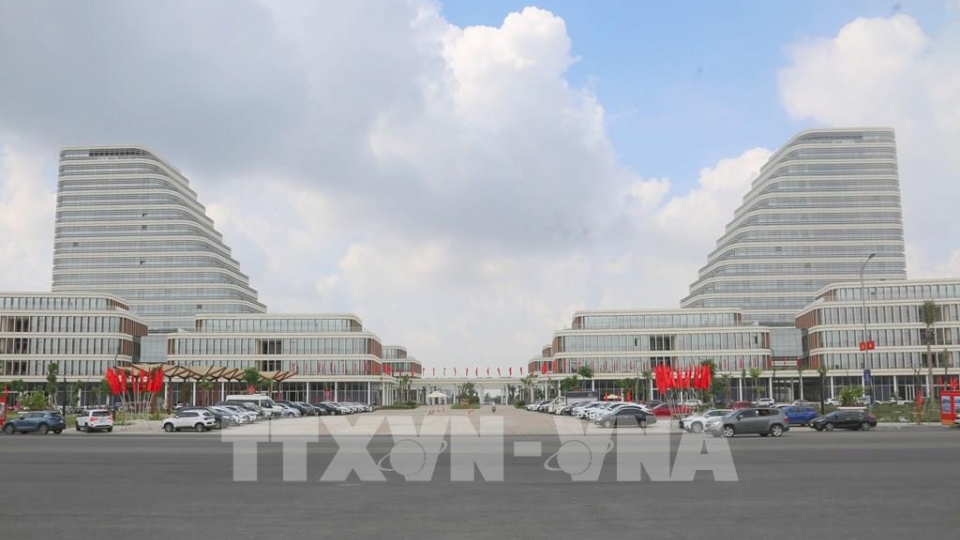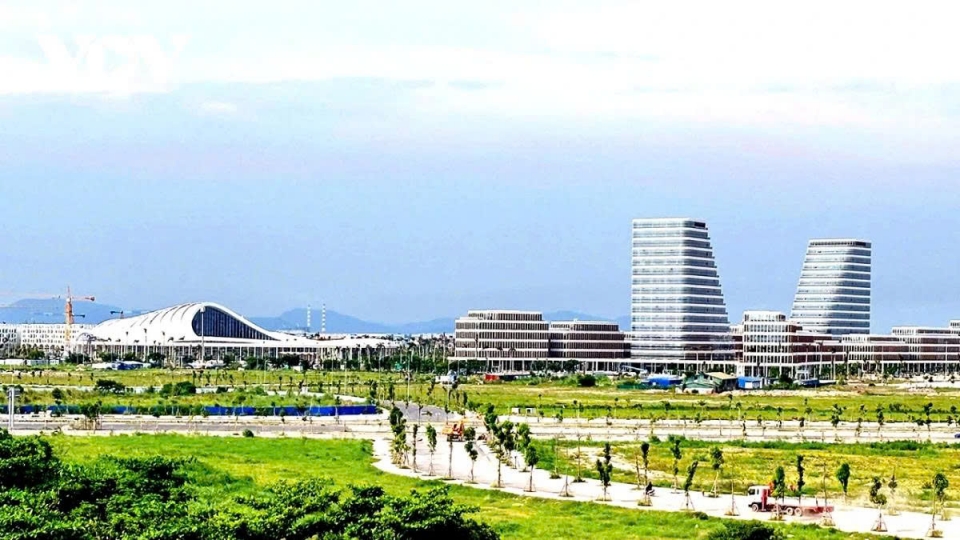President Luong Cuong: ABAC initiatives key to regional sustainable development
VOV.VN - President Luong Cuong emphasized that the APEC Business Advisory Council (ABAC)’s practical initiatives continue to be a driving force behind inclusive and sustainable development across the Asia–Pacific region, as he addressed the opening of the third ABAC meeting (ABAC III) in Hai Phong city on July 16.
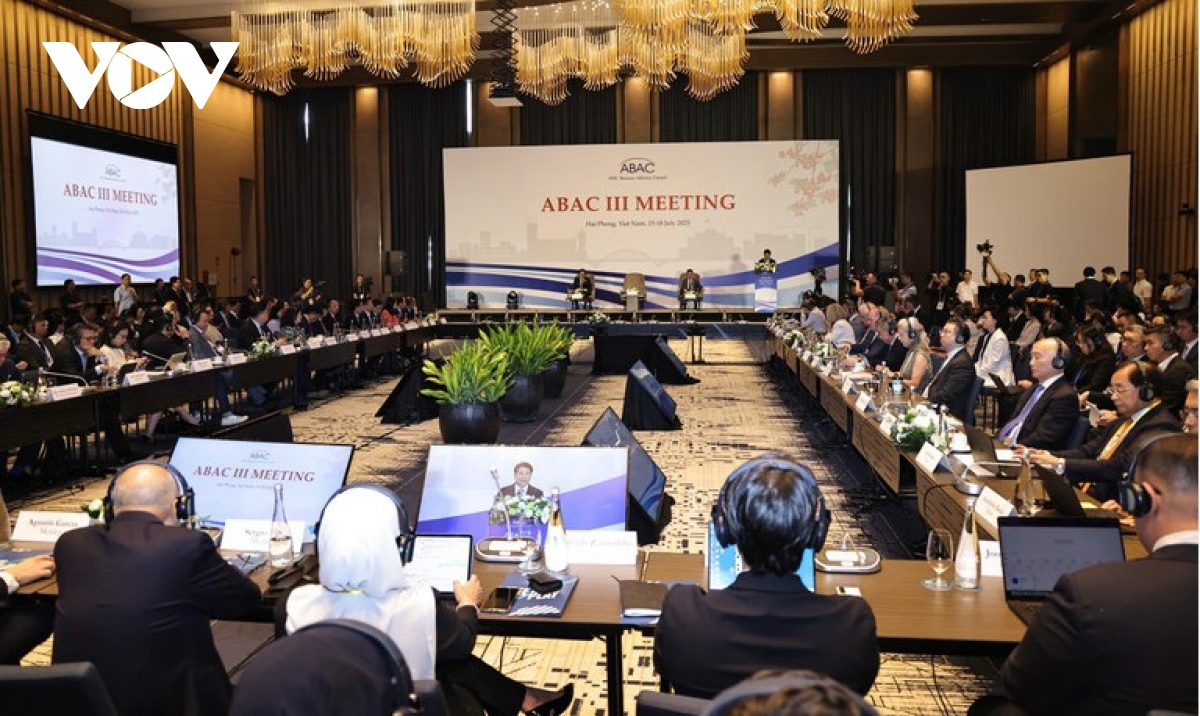
Taking place from July 15 to 18, ABAC III is jointly organized by the Vietnam Chamber of Commerce and Industry (VCCI), ABAC Vietnam, and the Hai Phong People’s Committee. The meeting brings together around 200 delegates from Vietnam and abroad, including ABAC members who are leaders of major corporations and businesses, as well as representatives of trade and investment promotion organizations, assistants, and invited guests from the 21 APEC economies.
The overarching theme of ABAC in 2025 is “Bridge. Business. Beyond.”–a message that embodies both the spirit of connection and a shared aspiration to overcome challenges and pursue sustainable development.
ABAC serves as the official mechanism of the business community within the APEC framework. Through dialogue with APEC Ministers and Leaders, it ensures that the business community’s voice is heard. ABAC is a key forum that enables the private sector to engage meaningfully in the region’s economic integration process. In doing so, it contributes to building a sustainable and prosperous Asia–Pacific economic community.
ABAC III is one of four official annual meetings of the Council, held on a rotating basis in major cities across the 21 APEC economies. It is not only a platform for high-level policy dialogue, but also a venue for the business community to jointly develop practical policy recommendations to be submitted to APEC Leaders during the APEC Economic Leaders’ Week later this year.
Hosting the meeting provides Vietnam with an opportunity to reaffirm its active role in regional economic integration, while demonstrating its strong commitment to the core values shared by APEC and ABAC: free trade, inclusive development, and sustainability.
It is also an occasion to promote the image of Vietnam, its people, culture, and identity to international partners, thereby enhancing the country’s global standing, supporting its economic diplomacy strategy, boosting tourism, and attracting high-quality investment over the long term.
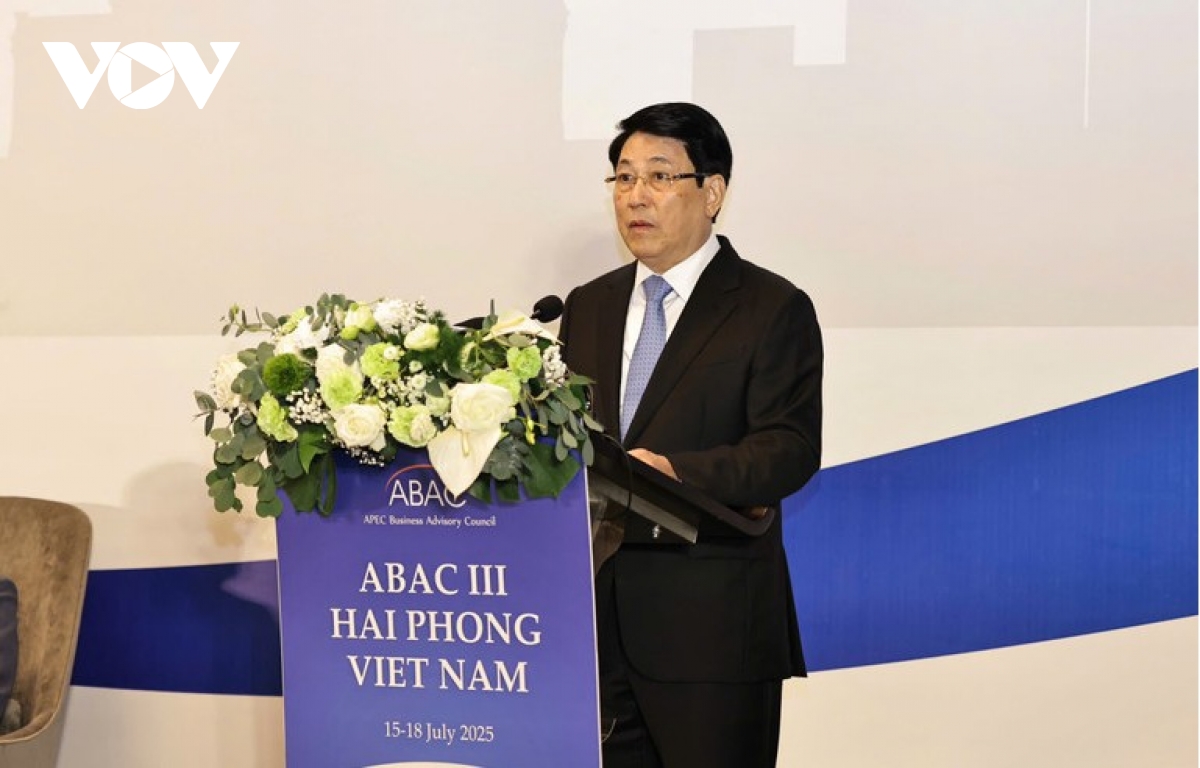
In his opening remarks, President Luong Cuong emphasized that over its 36-year journey of formation and development, APEC has affirmed its role as the region’s premier economic cooperation mechanism, serving as a driving force for growth and integration, and contributing to peace, stability, connectivity, and common prosperity across the Asia–Pacific.
Amid profound geopolitical shifts, a post-pandemic economic recovery fraught with hidden risks, and global challenges such as climate change, extreme weather events, shifting trade policies, and supply chain disruptions, the President stressed that multilateral cooperation and public–private dialogue are more vital than ever and must be elevated to a new level.
The Vietnamese State leader noted that as the official representative mechanism of the business community within APEC and a vital bridge between the private sector and APEC Economic Leaders, ABAC not only puts forward policy recommendations that facilitate economic development, but also actively contributes to shaping practical solutions to strengthen value chains, promote investment, facilitate trade flows, and encourage innovation. He expressed confidence that ABAC’s initiatives will continue to serve as a driving force for the region’s sustainable development.
He welcomed ABAC’s decision to center discussions at this meeting around key areas such as: free trade and sustainable investment; digital transformation and artificial intelligence; green finance and sustainable development; health security and innovation in biotechnology. He stressed that these are all top priorities in Vietnam’s national development strategy through 2030 and vision toward 2045.
The President affirmed that to realize these priorities, Vietnam is pushing forward with comprehensive institutional reform, improving its legal framework, and building a transparent, competitive, and stable investment and business environment.
In recent years, Vietnam has emerged as an attractive destination for international investors, not only due to its domestic market of over 100 million people, but also thanks to broad market access through a network of next-generation free trade agreements such as the Comprehensive and Progressive Agreement for Trans-Pacific Partnership (CPTPP), the Regional Comprehensive Economic Partnership (RCEP), and the EU–Vietnam Free Trade Agreement (EVFTA).
“Vietnam consistently attaches great importance to cooperation with APEC and actively contributes to joint efforts to realize the APEC Vision 2040 of an open, dynamic, resilient, and peaceful Asia–Pacific community for the prosperity of all people and future generations,” President Luong Cuong stated.
“This commitment is clearly reflected in Vietnam’s efforts since joining APEC in 1998, including the country’s pride in successfully hosting APEC Years 2006 and 2017. Vietnam places particular emphasis on promoting and facilitating trade and investment cooperation within the region.”
Cuong emphasized that with its central role in regional economic linkages and multilateral free trade agreements, Vietnam offers investors broad access to diverse markets and supply chains across the region. Investing in Vietnam means not only entering a dynamic, stable, and fast-growing economy, but also making a strategic move to connect with major and emerging global partners, as well as other free trade areas.
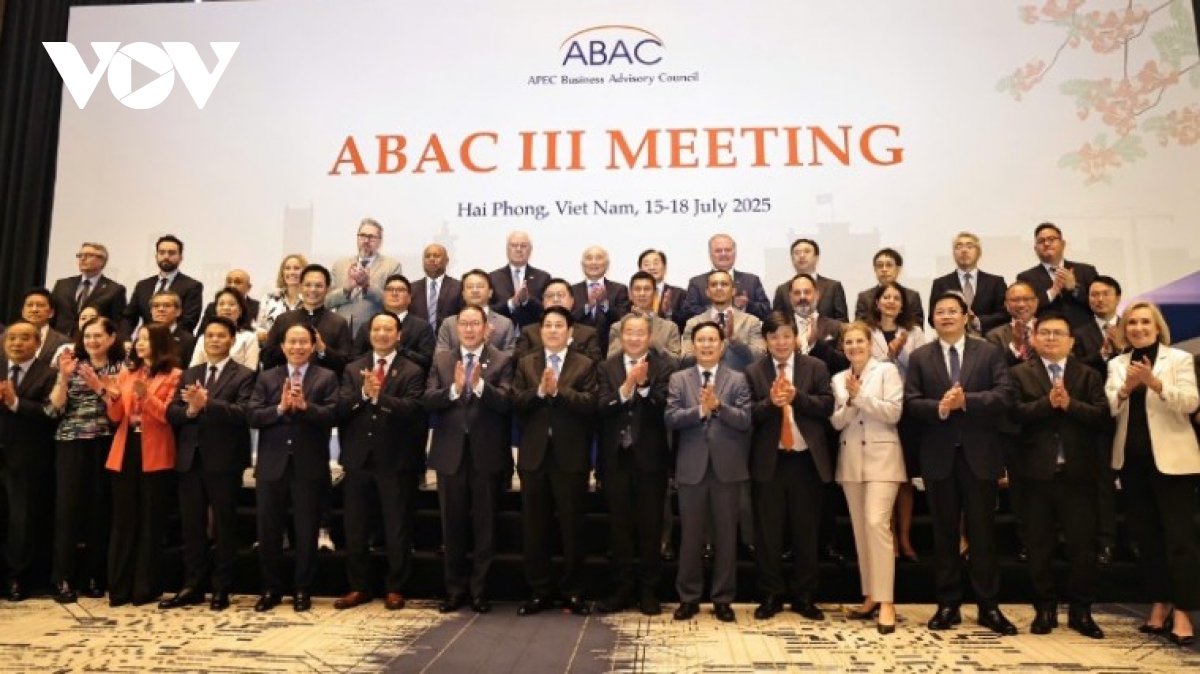
Sharing notable economic achievements in 2024, including, for the first time, exports exceeding US$390 billion, President Luong Cuong said that in 2025, Vietnam aims for growth of 8% or higher. This is expected to provide a strong foundation for achieving double-digit growth in the following years.
Vietnam is committed to rapid yet sustainable growth, maintaining macroeconomic stability, controlling inflation, and ensuring balanced and harmonious development across economic, social, and environmental dimensions. The country is also promoting innovation, expanding its technology ecosystem, and advancing research and development hubs in semiconductors, artificial intelligence, and the digital economy.
Recognizing the private sector as a pioneering force in Vietnam’s national modernization process, President Luong Cuong noted that the country has issued a number of important decisions to support the development of the private economic sector, particularly small and medium-sized enterprises. These include comprehensive support mechanisms ranging from access to finance, workforce training, and digital transformation to technological innovation and incentives for investment in priority industries. These efforts show Vietnam’s strong commitment to fostering an enabling environment and standing alongside the business community on the path toward sustainable development.
He underlined that the Vietnamese State and Government are currently implementing a wide range of support policies, including regulatory sandbox mechanisms, tax incentives for innovative enterprises, administrative procedure reform, and the development of digital infrastructure and open data to support businesses. At the same time, Vietnam encourages greater private investment in strategic sectors such as renewable energy, green economy, smart cities, and high-tech agriculture. The government is also proactively promoting policy dialogue with the private sector to promptly adjust regulations in line with real conditions.
He affirmed that Vietnam is striving toward a future of comprehensive development, laying the groundwork for businesses to accelerate growth through key targets in infrastructure, energy, digital transformation and technology, green and circular economy. By 2045, Vietnam aims to become a high-income developed country.
Emphasizing that a sustainable APEC cannot be achieved without strong linkages among businesses, the President called on the APEC business community to step up cooperation, integrate supply chains, share technology, and enhance resilience in the face of global shocks. He also incentivized organizations such as ABAC and major enterprises in the region to actively support micro, small, and medium-sized enterprises (MSMEs) through training, technology transfer, and market collaboration, thus enabling them to participate more deeply in global value chains and contribute to inclusive and sustainable regional development.
In the time ahead, Vietnam will continue promoting APEC cooperation initiatives that are people-centered, business-driven, and sustainability-oriented, he said, while reaffirming Vietnam’s commitment to working closely with ABAC in formulating practical policy recommendations that reflect the expectations and needs of the business community.
The President expressed his belief that the ABAC III meeting in Hai Phong will serve as a forum for connecting ideas, sharing vision, and inspiring innovation. The recommendations and initiatives conceived, developed, and refined at this meeting will play an important role in shaping the upcoming ABAC–APEC Leaders’ Dialogue in October in the Republic of Korea, he added.
Following the opening speech at ABAC III, President Luong Cuong and other delegates visited exhibition booths featuring Hai Phong’s local specialties, cultural heritage, and economic potential at the meeting venue.


